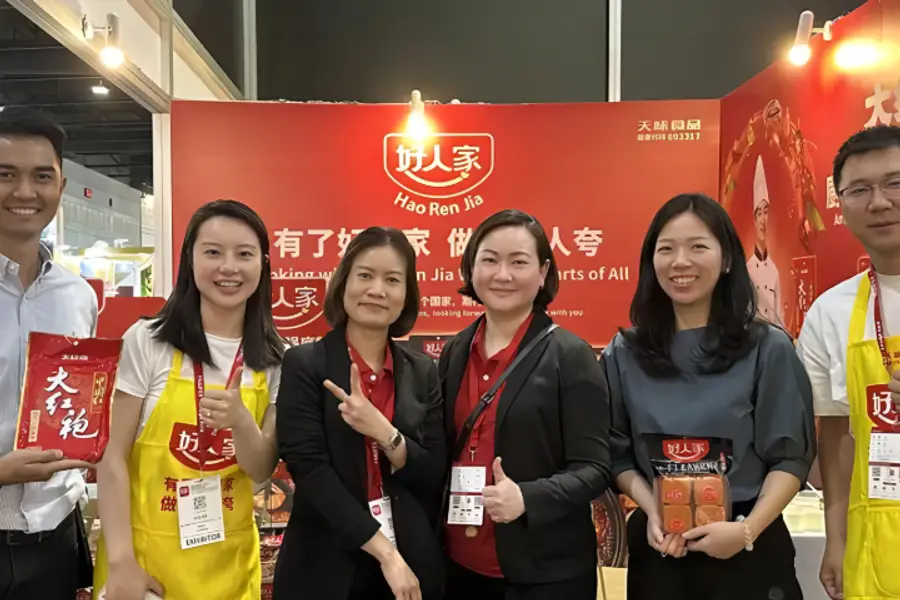Sichuan Teway spices up Hong Kong’s hot IPO market

The maker of ready-to-cook and hotpot pre-mixed seasonings has filed to list in Hong Kong, positioning itself as a consolidator in China’s huge seasonings market
Key Takeaways:
- Sichuan Teway has filed for a Hong Kong IPO, focused on the business of pre-mixed seasonings that are popular with today’s younger Chinese
- The company’s revenue grew about 15% annually between 2022 and 2024, but contracted in the first half of this year, as it blamed the timing of the Lunar New Year holiday
By Doug Young
At a time when many consumer stocks are offering bland valuations for investors, a notable exception has been condiment and seasoning makers, which may actually benefit during economic slowdowns as more people forgo eating out to cook at home. Makers of premixed spice combinations for cooking and popular eat-at-home hotpots look particularly well placed, catering to a younger generation that prizes convenience over traditional cooking from scratch.
Into that stew, Sichuan Teway Food Group Co. Ltd. (603317.SH) is hoping to sell investors on its ready-to-cook and hotpot seasonings business mix with its application last week for a Hong Kong IPO, which would complement its existing listing in Shanghai. The move would make Teway China’s second major seasoning company to list in both markets, following a Hong Kong IPO by soy sauce titan Haitian Flavouring (3288.HK; 603288.SH) in June.
In one slightly inauspicious sign, Haitian’s Hong Kong shares have actually fallen 13% since their trading debut through last Friday’s close, bucking a broader trend that has seen the benchmark Hang Seng Index rise 8% over that time. But even after that decline, Haitian’s Hong Kong shares still trade at a tasty price-to-earnings (P/E) ratio of 24, while its Shanghai-listed shares trade even higher at 32. By comparison, many retailers, restaurants and consumer product makers are barely trading in double-digit ratios these days.
Such high valuations is a common theme lately for seasoning stocks, which are benefiting as counter-cyclical plays in a slowing Chinese economy characterized by increasing consumer caution. Teway’s Shanghai-listed shares trade at a P/E multiple of 24, while Qianhe Condiment and Food (603027.SH) trades at 28. And Guoquan (2517.HK), which provides ingredients for hotpot cooking at home, trades at a healthy P/E of 30.
This group is very domestically focused, and Teway is a good example, saying that it currently gets more than 99% of its revenue from China. That makes its pursuit of a Hong Kong IPO somewhat unusual, since most Shanghai- and Shenzhen-listed companies making such second listings are seeking to raise their global profiles and cash for global expansion.
Teway talks about the potential for such expansion, and points out it currently sells to 50 countries and regions outside China. But the problem for many of these seasoning and condiment companies is that their flavors are very particular to Chinese palates, meaning they typically only sell well in countries with large ethnic Chinese communities.
That said, Teway has plenty of potential in its home market, thanks to changing preferences by a young generation that eschews traditional cooking in favor of pre-mixed spice packets that can be easily made into finished dishes. And then, of course, there’s the Chinese fixation with hotpots, which are hugely popular both in restaurants and also increasingly at home.
Teway’s two specialties are seasonings for such hotpots and read-to-cook seasonings for dishes like crayfish, fish, sausages and cured meats. China’s hotpot seasoning markets was worth 26.9 billion yuan ($3.8 billion) last year alone, and is expected to grow 9.1% annually over the next five years, according to third-party data cited in its listing document. The ready-to-cook seasonings market was worth 21.6 billion yuan last year, and is expected to grow by an even faster 12.5% annually over the next five years.
Low penetration
One of the reasons for such strong growth is the relatively low penetration rates for such pre-mixed seasonings, in a country where most people over 50 still prefer to make food from scratch using traditional condiments and seasonings like soy sauce and hot pepper flakes. But the younger generation is much more convenience focused, and will eventually become the dominant buying force in China’s condiment and seasoning market.
Teway points out the penetration rate for compound seasonings in mature markets like the U.S. and Japan currently stands at about 54% of the overall seasonings market – more than double the 25.4% penetration rate for China. So, there’s clearly plenty of room for growth as China plays catch-up with these more mature markets.
Teway was founded in 2007, and got into the food business in 2013 before launching its current ready-to-cook seasonings in 2015 and hotpot seasonings in 2017. The company has also made a couple of recent acquisitions, including its 919 million yuan purchase in 2023 of 55% of Sichuan Shicui, which serves the catering industry; and its 154 million yuan purchase last year of 64% of Hangzhou TasteMatters, which has strong online channels. That seems to show the company, now China’s fourth largest seller of compound seasonings, has the potential to emerge as a consolidator in this highly fragmented market.
It certainly has good credentials for such a role, harkening from Sichuan province, known for its spicy and flavorful dishes as one of China’s most famous cuisines.
The company’s actual business looks relatively old economy, including low double-digit growth averaging around 15% between 2022 and 2024, with its revenue reaching 3.45 billion yuan in the latter year. In a slightly worrisome sign, the company’s revenue fell 6.2% in the first half of this year to 1.37 billion yuan from 1.46 billion yuan a year earlier. It blames the timing of the Lunar New Year holiday, which fell in January this year, versus a February date in 2024. But we should point out that Haitian managed to post 7.6% revenue growth in the first half of this year despite that timing change.
Ready-to-cook seasonings are Teway’s big breadwinner, accounting for about two-thirds of its revenue, while hotpot seasonings account for most of the rest. The company’s gross margin has been rising steadily, from 33.9% in 2022 to 38% in the first half of this year, roughly comparable to Haitian’s and Qianhe’s figures. Teway’s bottom line also looks quite healthy, though its profit fell 25% year-on-year in the first half of this year to 185 million yuan as its sales and margins both came under pressure.
The bottom line is that Teway looks like a relatively solid bet in the current economy, both for its cooking-at-home focus and also its focus on pre-mixed seasonings whose growth is outpacing the market. The company could also be attractive if it continues to make shrewd acquisitions that could someday transform it into a global seasonings leader like giants McCormick (MKC.US) and Ajinomoto (2802.T).
To subscribe to Bamboo Works weekly free newsletter, click here






